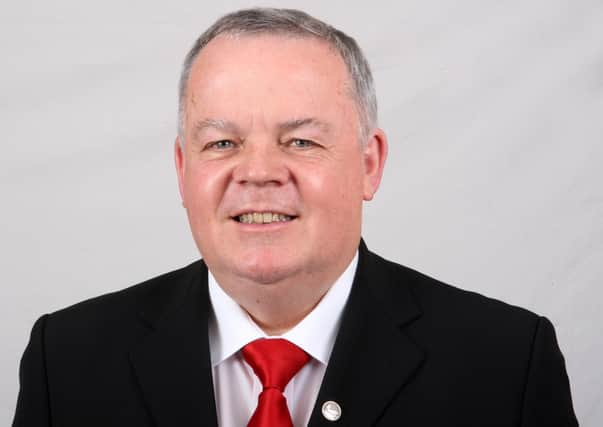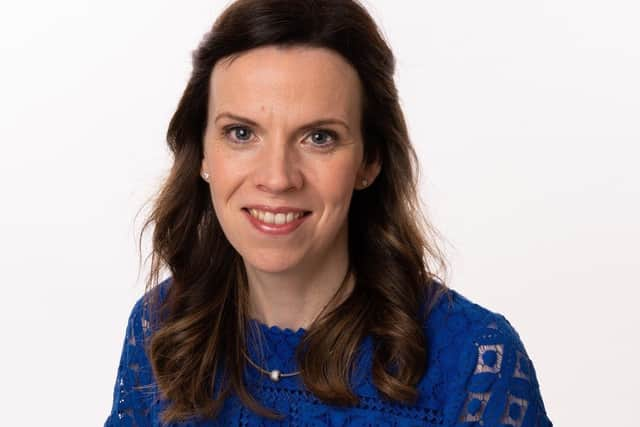‘Dad’s death was lesson in how vital hospice services are’: Helena Dallat-O’Driscoll


Mr Dallat’s daughter, Causeway Coast and Glens councillor Helena Dallat-O’Driscoll has taken the opportunity to look back over the year and to highlight the vital services provided by hospices.
She said: “It is hard to believe that a year has passed since dad died, in some ways time has stood still. I think most families bereaved in the last year will be experiencing a similar feeling.
Advertisement
Hide AdAdvertisement
Hide Ad“A lack of closure comes with a lockdown death, especially if restrictions were at their height.


“Although a small number of us were privileged to be with dad at the moment he died, we missed the rituals that we had all come to expect as normal. As a society, we have such a respect for the dead and the bereaved, regardless of culture or faith but COVID upended all those customs and comforting gestures.
“As was the case for many families, we had no wake and we were unable to keep his remains at home. We didn’t carry his coffin. The church was almost empty for his funeral. The only physical touch at his graveside was from our very immediate family. From that moment, I realised that, even as a mum of two tactile daughters, I had totally underestimated physical touch and how it comforts and modulates emotions.
“Having no visitors in the months following a death also adds to the feeling of isolation and I have felt particularly for those who might be living in remote areas or who don’t have their families close by.”
Advertisement
Hide AdAdvertisement
Hide AdShe continued: “All things considered, we were one of the luckier families. Although there was a feeling of isolation and loneliness due to the restrictions, at least the conditions were sufficiently safe for us to be with dad at the end.
“Thanks to first-class medical care from his consultant, our GPs, district nurses, carers and our NI Hospice community hospice nurse, we were able to care for him at home. Our community hospice nurse, in particular, taught us invaluable lessons.
“We quickly learned about symptom assessment and pain relief but also the preciousness of life and how to let someone with so precious little time left live as fully as possible until the end.
“He also died with nothing important left unsaid. Many other families never got a chance to nurse or say goodbye to their loved ones because of COVID circumstances and I find that unimaginably heartbreaking.
Advertisement
Hide AdAdvertisement
Hide Ad“It was a first class lesson in just how vital our hospice services are. However, despite their critical nature, their futures are frequently faced with uncertainty. The demands on our palliative and end-of-life care services are steadily increasing but funding has not kept pace. The present funding methodology is flawed and operates without evidence base or up-to-date benchmarks.
“Last week at Stormont, cross-party support was achieved for the inclusion of death, dying and bereavement in the Programme for Government and I very much welcome that. It is progress but we have a long way to go. We need to give much more sustainable support to our end-of-life care providers. We must not forget that these organisations are lifting the burden from the NHS which is why core funding is so important.
“Given the exceptional nature of this year, there is also a need for additional mental health resources to help deal with COVID’s psychological toll, especially for those grieving in our rural areas and those who have a limited network of support.”
She concluded: “This pandemic has reminded us that palliative and end-of-life care is a vitally important part of our care system and I believe it has opened up an important conversation around dying and bereavement.
Advertisement
Hide AdAdvertisement
Hide Ad“Grief is a normal, albeit sad and challenging, part of life. We will all experience the pain of losing a loved one at some point. However, I believe there is no doubt that the current pandemic has posed unprecedented challenges to the grieving process, setting the stage for more complex and prolonged reactions for many who have lost loved ones.
“My SDLP colleagues and I will continue to press for more sustainable provision for the dying and bereaved and call for urgent, additional resources to tackle the poor mental health some of our bereaved families are likely to suffer as a result of loss in what have been traumatic conditions.”